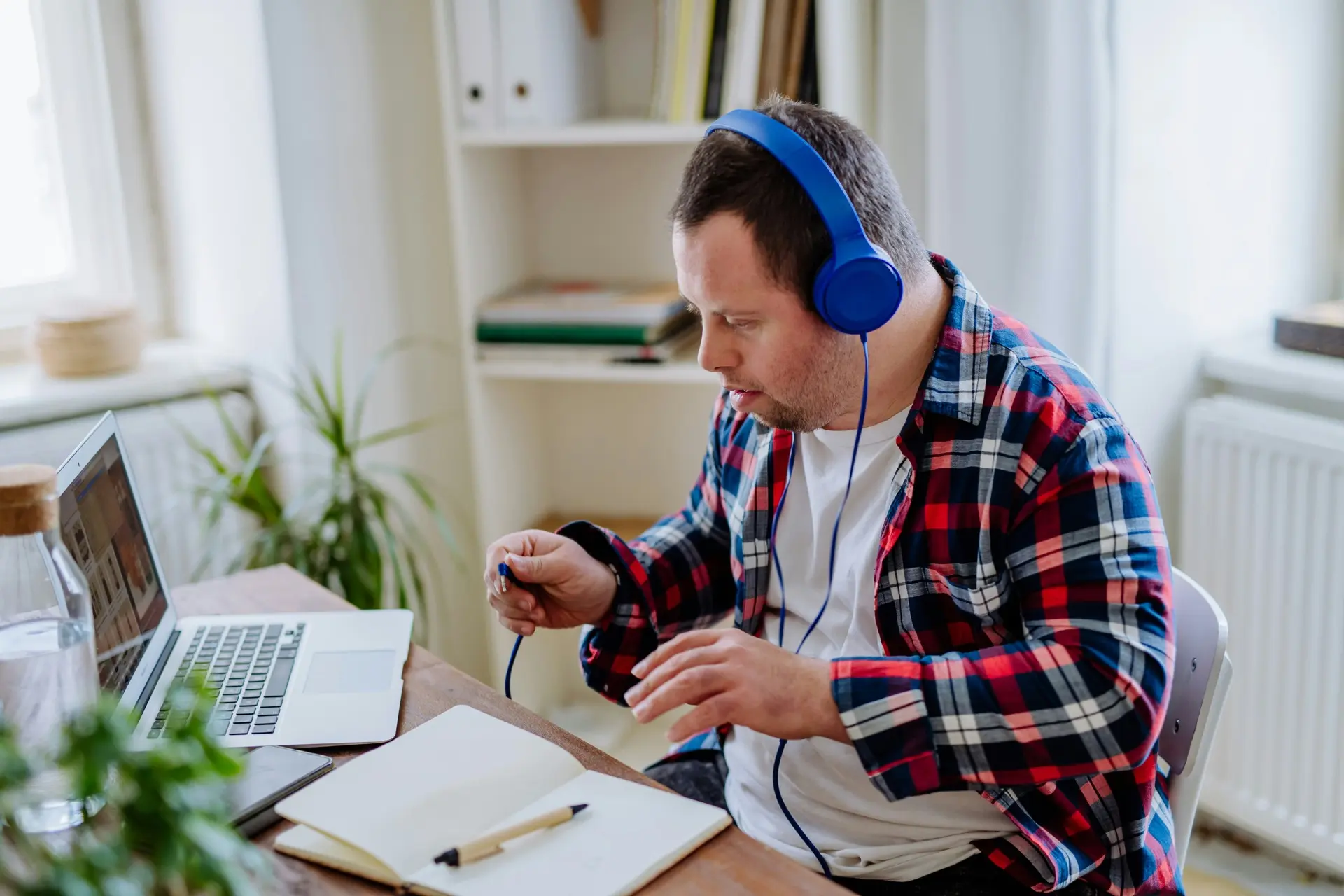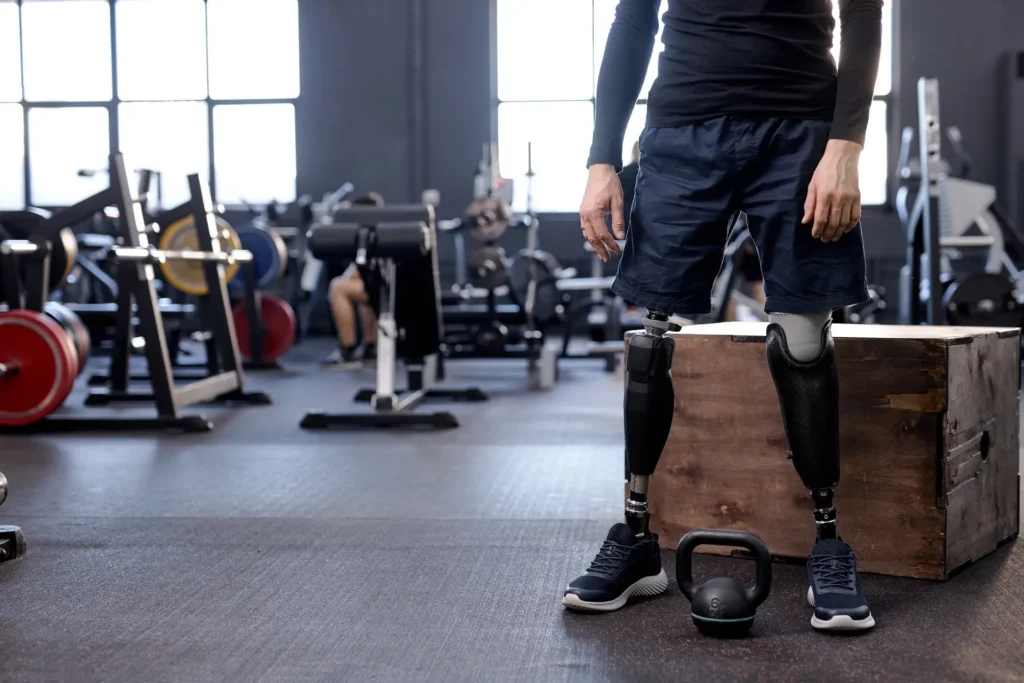How does NDIS funding work?
Your personalised NDIS plan outlines your goals, the supports designed to help you achieve them, and the funding allocated to cover those supports.
NDIS plans may include up to four types of support budgets: Core Supports, Capacity Building Supports, Capital Supports, and Recurring Supports. Each budget is divided into specific funding categories.

NDIS Plans using Pace or non-Pace

PACE is the new computer system introduced by the National Disability Insurance Agency (NDIA). It’s being rolled out gradually and will eventually replace the current system.
If you’re new to the NDIS, your plan will automatically be created in PACE. However, if you’ve been an NDIS participant for some time, transitioning to a PACE plan may take a little longer.
Why does this matter? The support budgets and categories in PACE plans differ slightly from those in the previous system.
NDIS Management for PACE Participants
Managing your funds doesn't have to be hard. There are 5 main areas to consider below.
- Core Supports assist with daily activities, addressing your current disability-related needs, and progressing toward your goals.The following four categories are flexible, allowing you to shift funding between them, provided they are managed in the same way (e.g., NDIA-managed, plan-managed, or self-managed).
Assistance & Supervision
Funding to support expenses for assistance or supervision with daily tasks. This may include:
- Community, social, recreational, or economic activities
- One-on-one support for attending social outings or activities
- Participation in sports and exercise, such as joining a club
Transport
Funding to cover transportation provided by a service provider, such as:
- Transporting you to an activity that is not a direct support service
- Transporting you to a support service offered by another provider
Assistance with Community Participation
Funding to support costs for accessing and participating in the community, including:
- Community, social, recreational, or economic activities
- One-on-one support for attending social outings or activities
- Participation in sports and exercise, such as joining a club
Consumables
Funding to cover everyday items and low-cost, low-risk products, such as:
- Nutritional supplements
- Continence products
- Auslan or Signed English training
- Low-cost assistive technology
NDIS Stated Categories - Part of Core
Categories that are defined as per your individual plan
Home and Living
Funding to help you live as independently as possible, which may include:
- Supported Independent Living
- Medium Term Accommodation
- Individualised Living Options
- Assistance with daily living tasks in a residential aged care facility
YPIRAC – Cross Billing
Funding to assist with certain fees and charges for young people in residential aged care, such as:
- The basic care subsidy
- Out-of-pocket care and accommodation expenses
Capacity Building Supports

Improved Living Arrangements
Funding to support you in finding and maintaining suitable accommodation, including help with securing a rental property and fulfilling tenancy responsibilities.
Finding & Keeping a Job
Plan managers like APMNDIS handle your budget, coordinate with providers, communicate with the NDIA about your claims, and process your invoices efficiently.
Imporved Daily Living Skills
Funding to provide supports that help you maintain, develop, or enhance your skills and capacity for independence and community involvement, including assessments, training, and therapy.
Health and Wellbeing
Funding to cover supports specifically aimed at managing the impact of your disability on your overall health and wellbeing.
Behaviour Support
Within the PACE plan framework, Advantage Plan Management helps to provide supports that assist in developing behaviour management strategies to address and reduce behaviours of concern.
Improved Daily Living Skills
Funding to support the maintenance, development, or enhancement of your skills and capacity for independence and community participation, including services such as assessments, training, and therapy.
Lifelong Learning
Funding to support your transition from school to further education, such as university or TAFE, through services like training, guidance, and assistance.
Support Coordination and
Psychosocial Recovery CoachesFunding for support coordinators and psychosocial recovery coaches to help you navigate your NDIS plan and establish connections with NDIS providers, community resources, and other mainstream supports.
Increased Social and Community Participation
Funding to provide supports for skills-based learning aimed at building independence in accessing and participating in the community.
Relationships
APMNDIS helps with your funding to support the development of positive social skills and enhance your ability to engage with others in the community.

Capital Support
Assistive Technology
Help to manage funding for assistive technology in PACE, this includes technology or equipment costs to assit you with living more independently. We have a full list below:
- Mobility aids, such as wheelchairs and transfer equipment
- Modified vehicles for improved accessibility
- Custom electric beds for comfort and support
- Bathing and toileting aids for daily living assistance
- Vision-enhancing technology for improved independence
- Devices to support personal care and safety
- Communication tools and assistive devices
- Hearing support technology for better audio clarity
- Assistance animals, including guide dogs
- Prosthetic limbs and orthotic supports
- Specialised footwear tailored to individual needs
- Equipment for safe and efficient transfers
Home Modifications
Funding to support structural changes to your home, making it more accessible and comfortable to live in. This includes assessments, installation, adjustments, and ongoing maintenance of the modifications.
Maintenance & Repair & Rental
We will help to support the spending of funds in your plan towards maintenance and repair of equipment used for assistive purposes. Also the rental and trial if needed.
Specialist Disability Accommodation
Funding to cover everyday items and low-cost, low-risk products, such as:
- Nutritional supplements
- Continence products
- Auslan or Signed English training
- Low-cost assistive technology
Transport & Recurring Supports

NDIS Management for Non-PACE Participants
Managing your funds doesn't have to be hard. There are 3 main areas to consider below.
Core Support
Core Supports assist with daily activities, addressing your current disability-related needs, and progressing toward your goals.The following four categories are flexible, allowing you to shift funding between them, provided they are managed in the same way (e.g., NDIA-managed, plan-managed, or self-managed). Please note that transport may be treated seperately.
Assistance & Supervision
Funding used for:
- Meal preparation, personal care, cleaning, or gardening services
Assistance with laundry, including linen services - Access to alternative living arrangements
- Short and Medium Term Accommodation and assistance, including respite care
- Supported Independent Living (SIL) options
- Support for daily living tasks provided in a residential aged care facility
- Nursing care tailored to meet your disability-related health needs
- Meal preparation, personal care, cleaning, or gardening services
Consumables
Funding for everyday items and low-cost products, such as:
- Low-cost assistive technology
- Auslan or Signed English training
- Nutritional supplements and continence products
- Minor equipment repairs
Support for Social and Community Engagement
Funding for community participation, including:
- Social, recreational, or sporting activities
- One-on-one support for outings
- Transport to activities
- Support to maintain employment
Transport
Funding for transport expenses related to your disability, including:
- Taxi fares if public transport is inaccessible
- Specialised transport to school, work, or community activities
Capacity Building Supports

Support Coordination
Funding for a coordinator to help implement your plan, organise supports, connect with the community, and prepare for reassessment.
Improved Living Arrangements
Funding to assist with finding accommodation, securing rentals, and meeting tenancy requirements for greater independence.
Increased Social and Community Participation
Funding for activities like classes, sports, camps, and transport to build skills and independence.
Finding and Keeping a Job
Funding for job support, including workplace assistance, career coaching, recruitment services, and mentorship.
Improved Relationships
Funding for services to enhance social skills or provide behavioural therapy.
Improved Health and Wellbeing
Funding for a personal trainer, exercise physiologist, or dietitian.
Improved Learning
Funding to support further education, including guidance, application help, orientation support, and participation assistance.
Improved Life Choices
Funding for a plan manager (like us!) to handle budgets, providers, claims, and invoices.
Improved Daily Living Skills
Funding for therapies like physiotherapy, speech pathology, and occupational therapy to enhance daily living skills.
Capital Support

Assistive Technology
Funding for specialized technology or equipment to support independent living, including:
- Wheelchairs and other mobility aids
- Smart devices and apps
- Communication devices
- Hearing assistive technology
- Vision assistive technology
- Assistive products for personal care and safety (e.g., beds, mattresses, personal alarms)
- Electric beds
- Bathing and toileting equipment
- Vehicle modifications
- Transfer equipment
- Assistance dogs (including guide dogs)
- Prosthetics and orthotics
- Custom footwear
- Repairs and maintenance for equipment
- Rental costs for assistive technology
Home Modifications
Funding for structural changes to your home to improve accessibility and comfort. This includes assessments, installation, adjustments, and maintenance of modifications. It may also cover Specialist Disability Accommodation for those requiring specialised housing due to their disability.